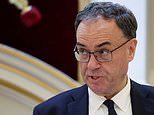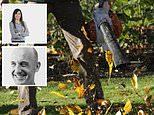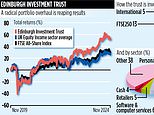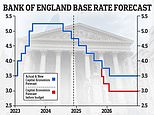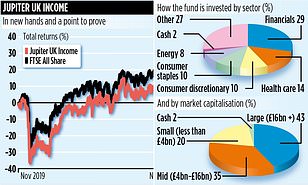Car finance scandal plunging Close Brothers into turmoil
Close Brothers is one of London's most venerable banking institutions. Founded in 1878 by William Brooks Close and his brothers Fred and James, the bank grew to prominence by financing 19th Century infrastructure projects, such as the White Pass and Yukon Route, Alaska's first railway.
Renowned for its old-world charm and links to the British aristocracy, the FTSE 250-listed lender has steered away from the racy worlds of investment banking and high-frequency trading and has stuck to the more traditional business of lending, deposit-taking and wealth management instead.
But one decision taken 40 years ago has come back to haunt the bank. When motor finance started to take off in the 1980s, Close Brothers decided to go all in. The sector was growing rapidly as demand soared for new and second-hand vehicles – and with it the loans needed to pay for them.
The car loan sector has boomed to the point that motor finance is now second in size only to the mortgage markets, surpassing even credit card lending.
At Close Brothers, car loans make up a fifth of total lending, or nearly £2 billion. Now, what once looked like a reliable stream of revenue and profit, has turned sour. There is speculation that the bank could be forced to sell assets to meet compensation claims, possibly including the Winterflood Securities stockbroking operation, one of the best-known names in the City. Some observers fear Close Brothers itself could become a takeover target.
'It is easy to see why the decision [to enter the car loans business] was made at the time,' said Gary Greenwood, an analyst at investment bank Shore Capital. 'Unfortunately though, it looks like it has come unstuck.'
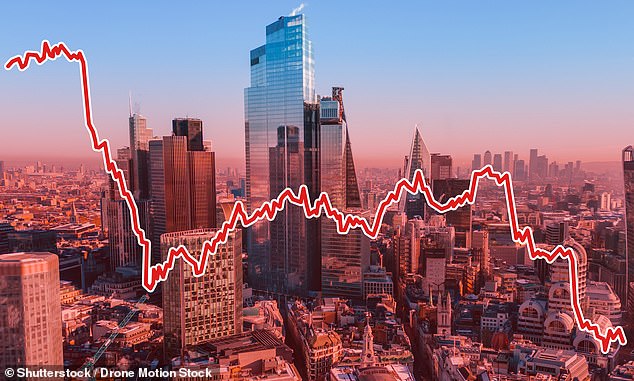
Slippery slope: Close Brothers shares are down more than 70 per cent so far this year
The trouble started in January, when the Financial Conduct Authority, the industry regulator, announced a probe into hidden commission payments made by lenders to dealers without the customer's knowledge or consent.
The issue escalated last month, when the Court of Appeal ruled that commissions to car dealers may be unlawful if they were not clearly flagged to customers. Close Brothers says it intends to appeal to the Supreme Court, the highest court in the land.
Larger banks, including Lloyds, the owner of market-leading car finance provider Black Horse, are also implicated.
Lloyds set aside £450 million earlier this year for possible claims, and Santander last week earmarked £295 million.
But while the major lenders are big enough to ride out the storm, Close Brothers is the most exposed in relative terms to the mounting scandal.
Its shares are down more than 70 per cent so far this year and its latest results showed that costs had jumped nearly 50 per cent to £14.2 million as the bank spent heavily on legal and professional fees.
To make matters worse, its chief executive, Adrian Sainsbury, is on 'temporary medical leave' and no date has been provided for his return.
Should it fail to win its appeal, Close Brothers could be forced to sell off more assets to ease investors' and regulators' nerves.
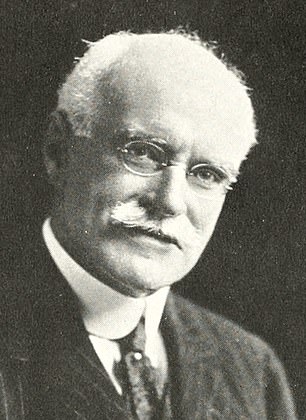
Founder: William Brooks Close
The bank has agreed to sell its wealth division to private equity firm Oaktree in a deal worth £200 million.
It has also scrapped dividend payouts to shareholders in a bid to shore up its finances.
Analysts say Winterflood could be the next in line – an asset that according to Greenwood could be worth 'tens of millions' of pounds. Potential buyers include rival Panmure Gordon.
Credit rating agency Moody's has calculated that the final compensation bill for the industry as a whole could balloon to £30 billion – which would make it the biggest mis-selling scandal since payment protection insurance (PPI).
'We had just got over PPI and there was a real sense that Britain's banks were investible again – and now this. It will hang over bank share prices for the next decade,' said Robert Sage, a bank analyst at stockbroker Peel Hunt.
Close Brothers may be one of the old-school merchant banks left in the Square Mile, but its fate now lies in the hands of our learned friends.
DIY INVESTING PLATFORMS
Affiliate links: If you take out a product This is Money may earn a commission. These deals are chosen by our editorial team, as we think they are worth highlighting. This does not affect our editorial independence.
Compare the best investing account for you





